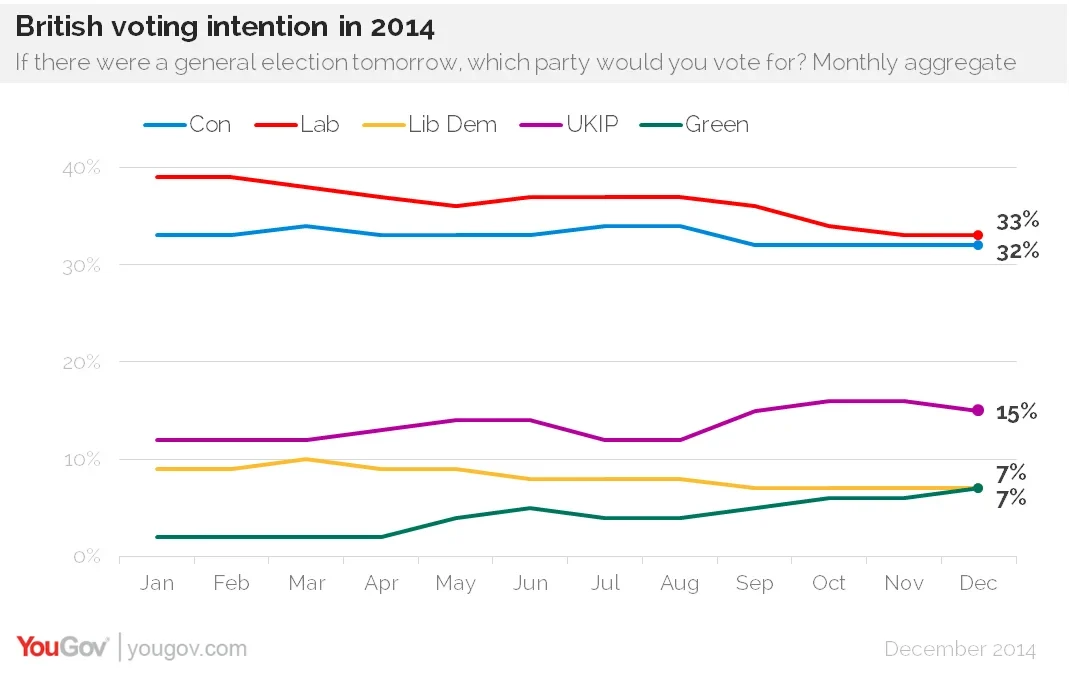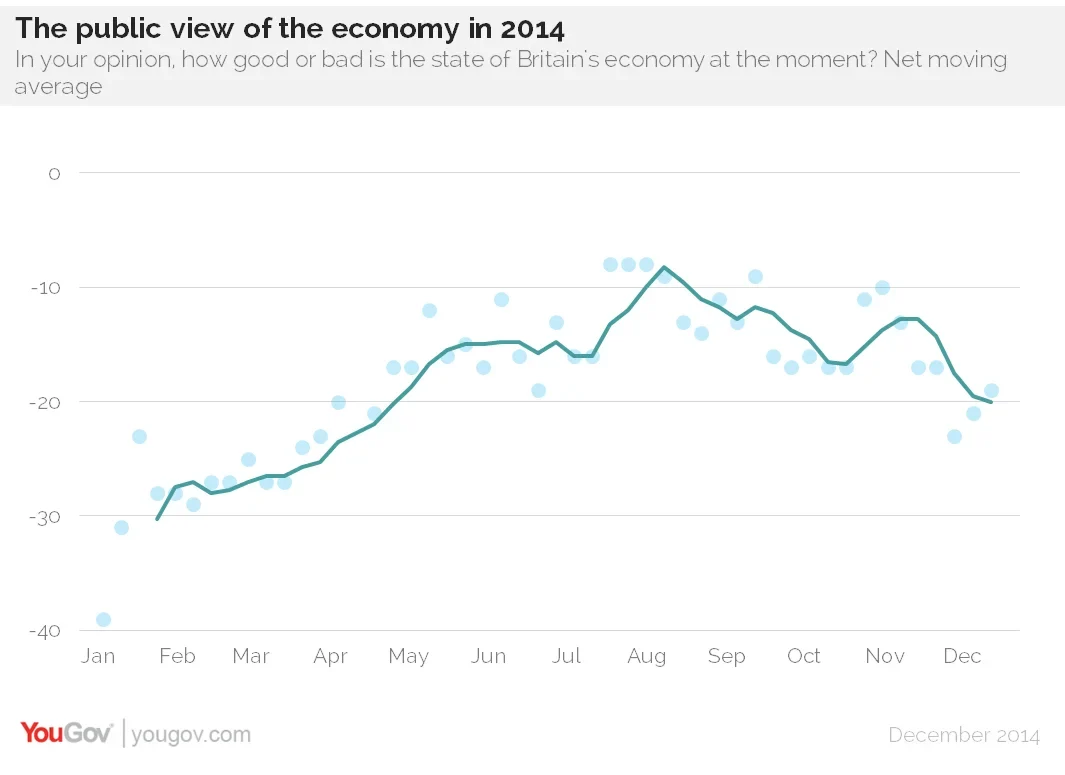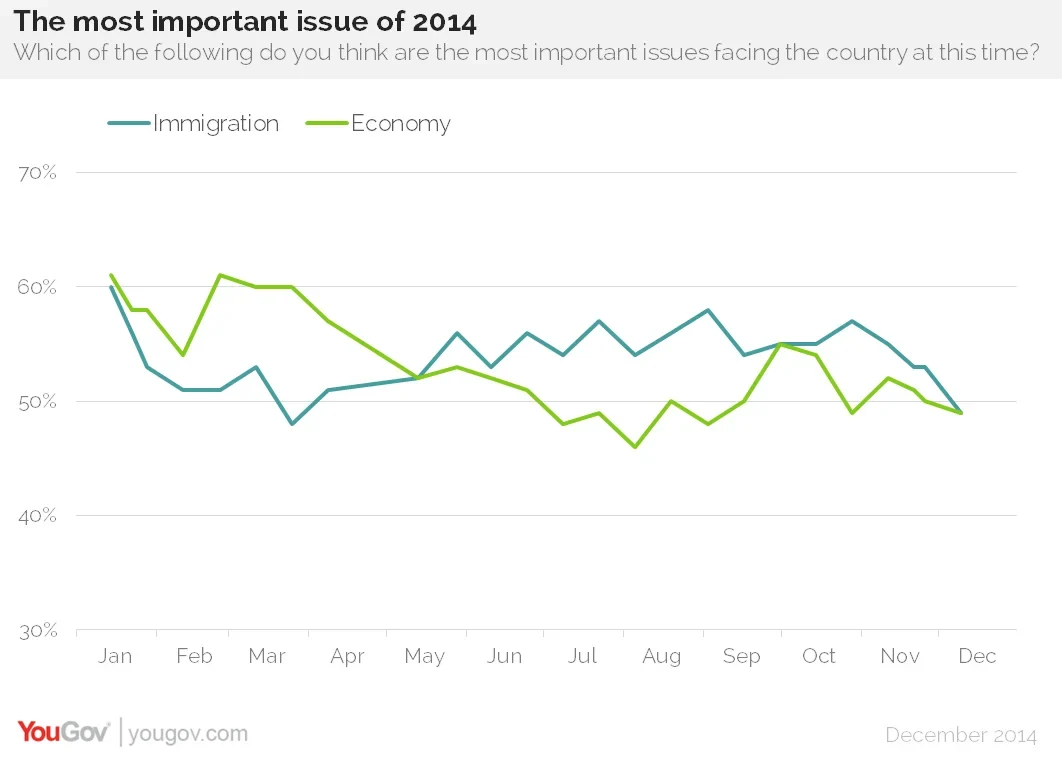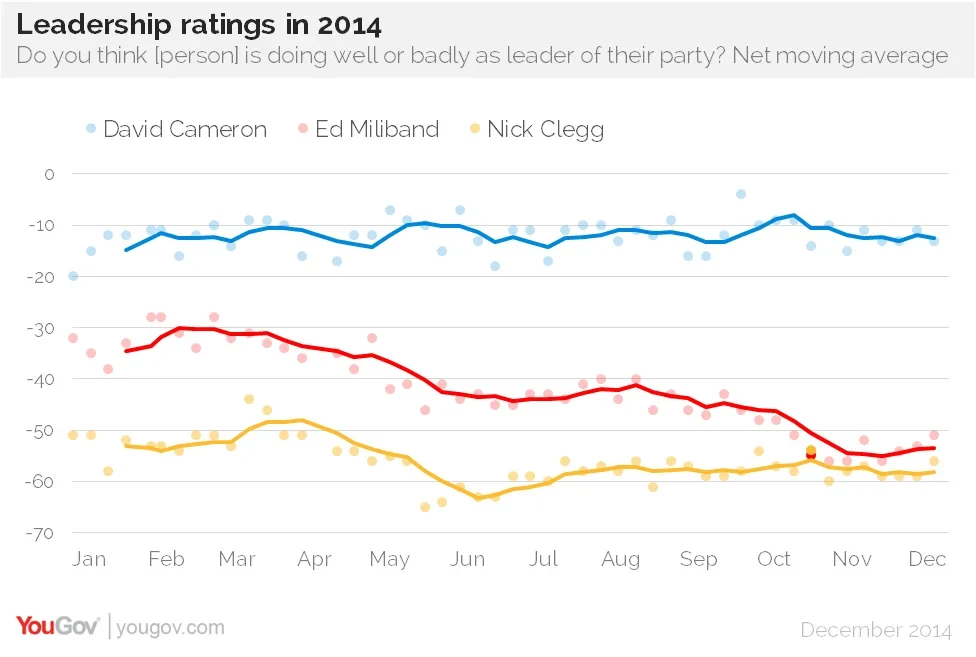From the Scottish independence referendum to the European Parliament elections, it's been a big year for politics - here are four trends that stood out
1. Labour and the Conservatives became almost tied in voting intention - and the Greens and Lib Dems actually did

In aggregate of YouGov's daily voting intention polls Labour started the year with a six point lead over the Conservatives, and ended it with a one point lead. Meanwhile, the Greens started as a party with only 1% more support than the BNP and finished as Britain's fourth most popular party - tied with the Lib Dems.
2. Perceptions of the economy peaked, and began to dip

In August perceptions of the economy were at their best since 2010, with 28% saying the economy was in a good condition and 36% saying it was bad (the worst rating to date was in December 2011, when 2% said the economy was performing well and 86% said it was doing badly). However since the summer perceptions have been on the wane, accompanying bad news on borrowing and downward revisions to growth figures.
3. Immigration became the public's most important issue

From May to December immigration was seen as the most important issue facing the country, except for on three occasions when it was tied with the economy. Although immigration began to narrow the gap at the end of 2013, 2014 is the first year since 2010 when the economy has not been the top issue; immigration had an average lead of one point over the whole year, compared to a deficit of 18 in 2013 and 32 in 2012.
4. Ed Miliband's leadership ratings reached a new low

At the end of October one poll registered Ed Miliband (-55) as less popular than Nick Clegg (-54). The Labour leader's December average was -53, down 18 points from his January average of -35. Ed Miliband's high point was in October 2012, when his average approval (-14) was better than David Cameron's (-20).
This article was amended on 21/01/2015 – a chart indicating a trend in Scotland may not have been conclusive.





